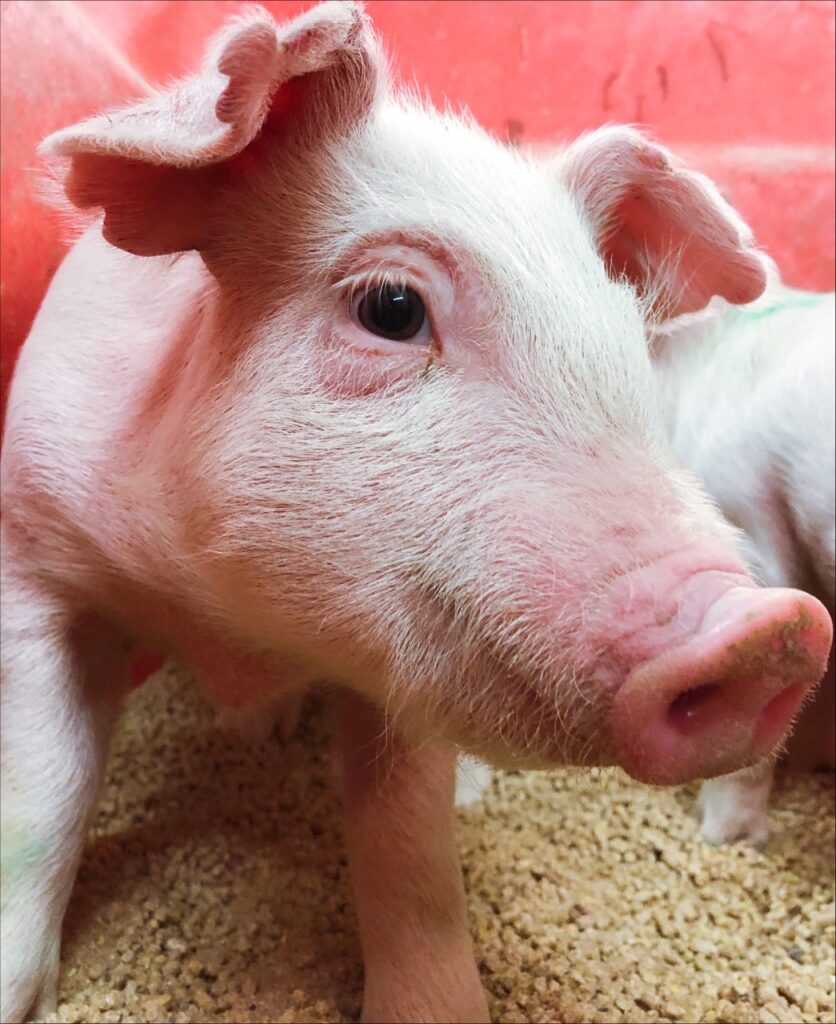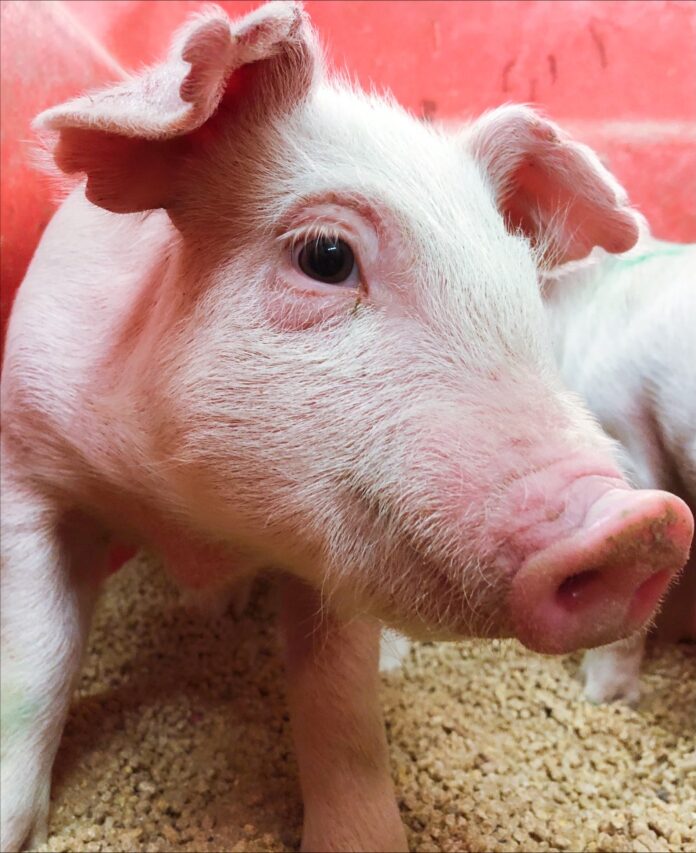By Swine Innovation Porc
Editor’s note: This article is a project summary prepared for Swine Innovation Porc, as part of a series of articles covering SIP’s work. For more information, contact info@swineinnovationporc.ca.

If you want to kill the buzz at a party, bring up diarrhea. Though it’s rarely discussed off the farm, the condition is a major concern for producers, sparking science to look for solutions.
Given the stakes, developing an alternative and environmentally friendly strategy to combat post-weaning diarrhea and improve the overall health of pigs is imperative. Post-weaning diarrhea is caused by a group of E. coli that produces special toxins and is widespread in swine production today. In addition to causing stress for the animals, it does the same for their owners by harming growth performance and increasing mortality in the barn.
In many cases, farms rely on antibiotics to treat post-weaning diarrhea. Given the rise in antibiotic-resistant bacteria associated with livestock farming, pressure is growing to phase out the drugs completely, with some countries already banning their use in feed to promote growth.
Heavy metals like zinc oxide have proven effective in controlling diarrhea yet have come under considerable scrutiny for their negative effects on animal health and the environment. These metals can accumulate in vital organs like the pancreas and liver and can contaminate soil and water.
Probiotics: all pros, no cons
Now that we know what doesn’t work, only one question remains: what does? Based on recent studies, the addition of probiotic bacteria – live micro-organisms that are intended to have health benefits when consumed – to the diet has several advantages for piglets during weaning: improved nutrient digestibility, reduced pathogen levels and greater gut immunity.
As a further benefit, adding specific probiotics to pig feed could help reduce the number of antibiotic-resistant bacteria in the intestine. One such probiotic – Lactobacillus – has been studied extensively for this purpose and is now being used in commercial applications.
Another promising option in the battle against post-weaking diarrhea is a particular strain of Bacillus species, known as Bacillus subtilis. Bacilli are rod-shaped bacteria that can form spores and survive in harsh conditions. These bacteria are plentiful, residing in soil, water, dust and air, and will thrive in various temperatures. Furthermore, their ability to create spores at high temperatures and endure high-acidity environments make Bacillus subtilis a robust strain that could be developed as an in-feed probiotic supplement. In recent studies, augmenting pig diets with probiotic Bacillus subtilis reduced the incidence and severity of diarrhea and boosted the immunity of piglets during testing.
Apart from addressing diarrhea caused by E. coli, the inclusion of Bacillus-based probiotics in nursery pig diets may reduce the presence of feed-induced diarrhea and help maintain or improve growth performance. This is significant, since weaning-associated diarrhea can also be triggered by economical diets that are mostly plant-based.
Because feed cost is a huge burden on the industry, less costly regimens are often necessary, but they have also been associated with a higher incidence of diarrhea and lower intestinal integrity, which refers to the ability of the intestine to maintain its structure and function.
Scale-up testing needed
Good research is an investment in the future, so the scientists in this study were grateful for financial support from Swine Innovation Porc (SIP), the Ontario Ministry of Agriculture, Food and Rural Affairs (OMAFRA) and CBS Bio Platforms Canada.
From the University of Guelph’s Department of Animal Biosciences, several researchers and students joined forces for the project: Julang Li, Sudhanshu Sudan, Lee-Anne Huber, Robert Friendship, Elijah Kiarie, Xiaoshu Zhan, Lauren Fletcher and Serena Dingle.
Also integral to the project were Rob Patterson, Vice President, Innovation & Commercialization, CBS Bio Platforms, and the animal care and sampling assistance provided by the barn staff and research associates at the Arkell Swine Research Facility, along with sample processing and data extraction by BioZone at the University of Toronto.
Based on the current results, low-dose supplementation can achieve significant improvements in growth performance in a research environment. From here, larger studies in commercial production settings must be conducted to confirm these findings.
While there is still work ahead, this study adds to a limited body of research on the use of probiotics as an alternative to zinc oxide and antibiotics in guarding against post-weaning diarrhea. The results also suggest that supplementing piglets with a novel Bacillus-based probiotic may improve feed efficiency and growth performance, offering an economical feeding strategy to benefit producers around the world.
As a dinner topic, that sure beats diarrhea.






